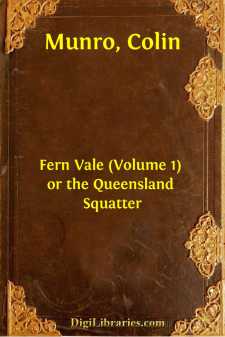Categories
- Antiques & Collectibles 13
- Architecture 36
- Art 48
- Bibles 22
- Biography & Autobiography 815
- Body, Mind & Spirit 144
- Business & Economics 28
- Children's Books 18
- Children's Fiction 14
- Computers 4
- Cooking 94
- Crafts & Hobbies 4
- Drama 346
- Education 58
- Family & Relationships 59
- Fiction 11834
- Games 19
- Gardening 17
- Health & Fitness 34
- History 1378
- House & Home 1
- Humor 147
- Juvenile Fiction 1873
- Juvenile Nonfiction 202
- Language Arts & Disciplines 89
- Law 16
- Literary Collections 686
- Literary Criticism 179
- Mathematics 13
- Medical 41
- Music 40
- Nature 179
- Non-Classifiable 1768
- Performing Arts 7
- Periodicals 1453
- Philosophy 65
- Photography 2
- Poetry 896
- Political Science 203
- Psychology 44
- Reference 154
- Religion 515
- Science 126
- Self-Help 85
- Social Science 82
- Sports & Recreation 34
- Study Aids 3
- Technology & Engineering 59
- Transportation 23
- Travel 463
- True Crime 29
Our website is made possible by displaying online advertisements to our visitors.
Please consider supporting us by disabling your ad blocker.
Fern Vale (Volume 1) or the Queensland Squatter
by: Colin Munro
Description:
Excerpt
PREFACE.
Some fifteen years ago, when the first mention was made in the Imperial Parliament of the intention of Her Majesty to dismember the Northern districts of New South Wales, for the purpose of establishing a refuge for the expatriated felons of Great Britain, a certain noble lord rose to enquire where New South Wales was, and whether it was anywhere in the vicinity of Botany Bay.
Since the time of this sapient patrician much has been said, and more has been written, respecting our antipodean empire; though I believe the mass of the English people are still as unacquainted with the characteristics of the colony, and the manners of colonial life, as if the vast continent of Australia remained in its primitive inanition. Poor as is the knowledge of our friends "at home" respecting their periecian brethren, I grieve to say, with regard to, or rather of, the Australian colonists, that knowledge is too frequently tinged with prejudice and erroneous impressions, formed from the writings of discontented colonists, who, without a sufficiently lengthened residence in the country, or opportunities to form correct opinions, have not only disregarded facts, but have presumed to pass judgment upon what they have never appreciated or understood, and have written statements decidedly false and scandalous.
It is notorious that in some circles of society, the bare mention of Australia in connexion with any one's name is sufficient to create a feeling of distrust and contempt, and the colonists are at once stamped as being, at least, something mean, with antecedents involved in a suspicious obscurity. Unfortunately there have been writers, too, who have come before the public professing an intimate acquaintance with, and an impartial judgment of, colonial life, who have not failed to heap aspersions on the very name of the country and everything connected with it, and to envenom their writings with the rankest untruths. I have read accounts of colonial society where it has been characterized as the vilest that can be imagined in a civilized state; where the men are spoken of as habitual debauchees, and the women as universally shameless, immoral, and dissipated; where life and property are insecure; and bushrangers are the terror of the inhabitants.
I don't say such productions are numerous. I rejoice that they are not; but many people are inclined to receive such a description as a truthful one, and to consider a true narration of facts as merely an over-drawn and flattering panegyric of an interested author. People have been long accustomed to look upon Australia as only a place for convicts, and the population, if not prisoners themselves or those who have served their allotted term, at least as the descendants of those who have done so. I have frequently had the question gravely put to me whether or not such is the case; and have experienced great difficulty in inducing people to believe otherwise. They forget, if indeed they ever knew, that many leading men in this country owe their position in society to a prosperous career in the Australian colonies, and that more than half the colonial settlers are men of good family connexions who have emigrated to improve their position in occupations which are at the same time remunerative and honourable.
When this is remembered, in conjunction with the fact that transportation has been discontinued for many years, and that, after the expiration of a convict's term of expatriation, if of an incorrigible nature, he invariably returned to the "old country," where he had a wider field for the exercise of his genius, it can't but be seen that, generally, there must be a healthier tone of society in the colony than is credited "at home;" while morality is quite on a par, if not above the ordinary level of British ethics....


